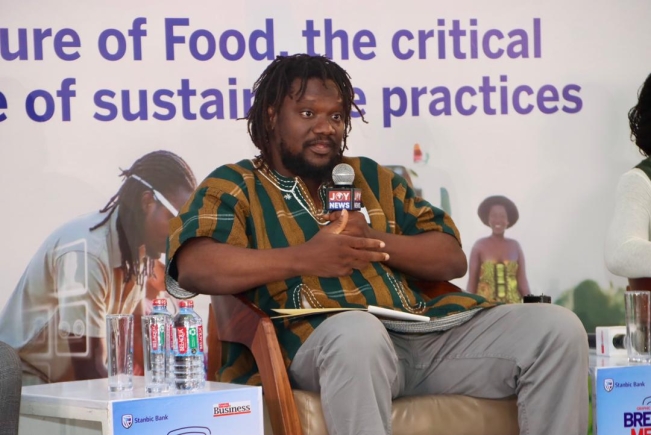
Prof Quist-Aphetsi calls for tech-driven agricultural revolution at Graphic Business/Stanbic Bank Forum
The Chairman of the National Cyber Intelligence and Cyber Defense Research Project, Professor Kester Quist-Aphetsi, has called for the urgent integration of advanced technologies, including artificial intelligence, precision agriculture, and data analytics, to future-proof Ghana’s agricultural sector.
Speaking at the Graphic Business/Stanbic Bank Breakfast Meeting in Accra, which was themed “Future of Food: The Critical Place of Sustainable Practices,” Professor Quist-Aphetsi argued that sustainable agriculture must be driven by technology and data-informed decisions to address the twin pressures of rising population and dwindling arable land.
“Our land resources are reducing every single day. Population is increasing. Everybody wants to build, and farmlands are being lost to real estate. Climate change poses a lot of challenges, but we have to learn to survive within this space,” he said.
He predicted a future — possibly 100 years ahead — where precision agriculture and medicine will be so advanced that sensors embedded in human bodies could advise individuals on what quantities and types of food to consume for optimal health. “In the future, there will be sensors… that will communicate with other external systems in terms of, if you eat this particular amount, what will happen to you,” he said, adding that this level of predictability will extend to agriculture and food storage.
According to Professor Quist-Aphetsi, Ghana’s future food security will depend on innovations like urban farming, drip irrigation, and the use of AI-enabled systems to regulate environmental conditions for plant growth. He cited examples from Israel, a leader in agri-tech, where harsh climates have been overcome through technology-led farming.
“Technology must come in to guide us to achieve these results. That is where we engage sensors and other computing approaches to help us understand what we do on the farm,” he noted. He also shared how he and his students had used computer-guided systems to grow crops within controlled environments such as inside bank vaults.
Professor Quist-Aphetsi called for greater investment in local technology solutions tailored to Ghana’s environment, rather than relying entirely on imported systems. “We can develop these technologies locally… Our conditions are different from theirs, and we have to understand our environment and develop the technologies to preserve our food.”
In a strong appeal to policymakers, he advised the government to think beyond agriculture itself and focus on building systems that support it — such as creating comprehensive soil databases and using geolocation and mobile data to predict food production and inform infrastructure planning.
“For example, based on how food is produced in a region, this data should inform the Ministry of Transport about what kind of road infrastructure is required to support food transport. It’s not just about planting; it’s about connecting the dots,” he explained.
He concluded by stressing the critical role of data — both active and passive — in shaping Ghana’s agricultural strategy and ensuring sustainable development. “Regardless of the time, data itself is very useful… all can come together to support this goal.”
The event, organised by Graphic Communications Group in collaboration with Stanbic Bank Ghana, is part of a quarterly thought leadership series aimed at addressing key national issues, especially those affecting the macro and microeconomic landscape.